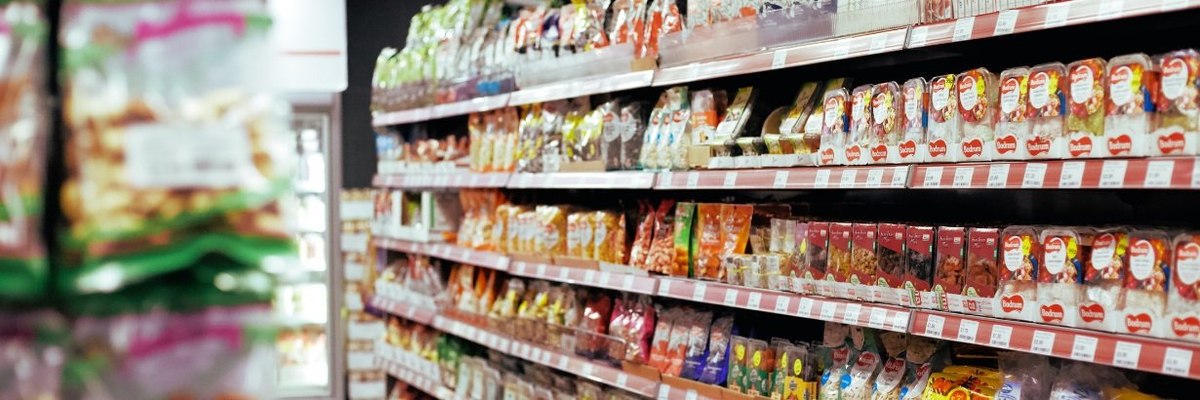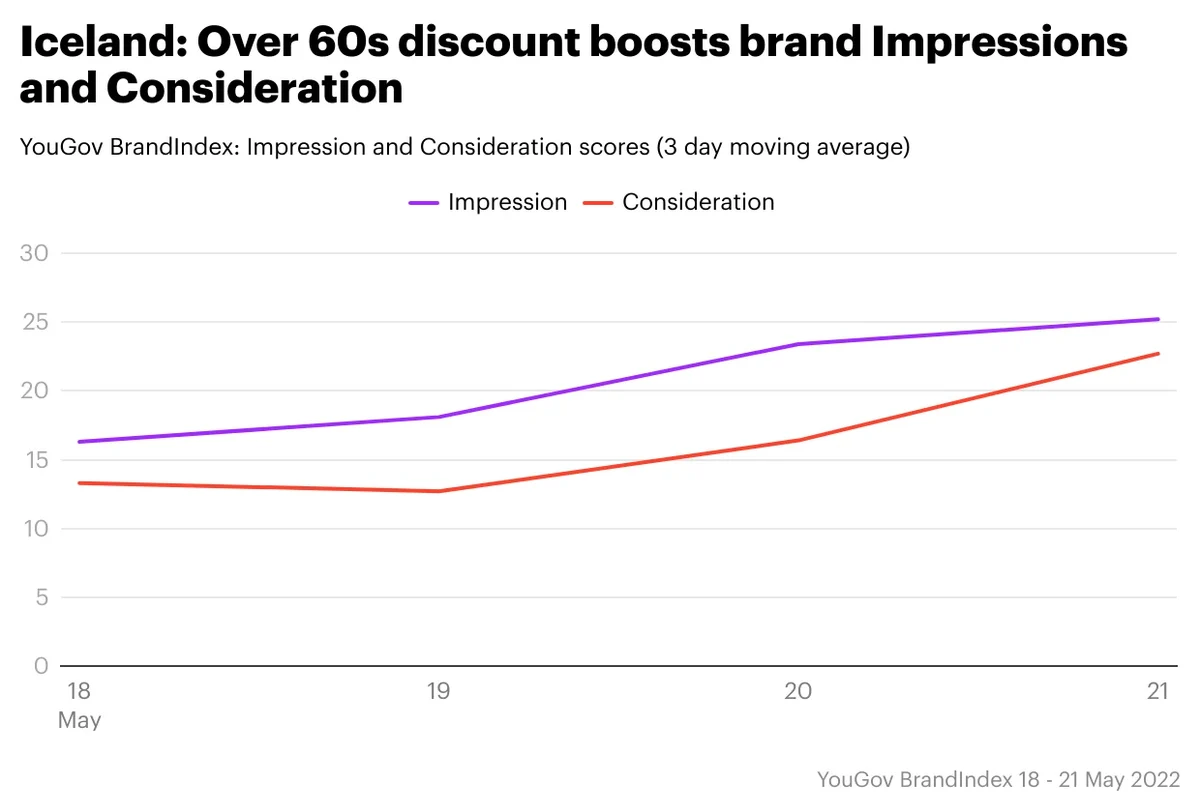
Iceland’s cost of living discount for the over-60s boosts brand health
Iceland recently announced that, starting from May 24, customers over the age of 60 would receive a 10% discount on their grocery shopping in the store every Tuesday. The move is motivated by the concerns older shoppers have experienced around the cost-of-living crisis – which has seen energy bills and food prices rise, among other things, in recent months.
Mere days after the announcement, the move looks to have been well-received by the general public. YouGov BrandIndex shows that, between May 18 (the day before Iceland made the announcement) and May 21, Buzz scores – which measure whether people have heard anything positive or negative about a brand in the past two weeks and nets the scores – doubled from 3.2 to 7.2 (+4). This improved overall sentiment towards Iceland: Impression scores rose from 16.3 to 25.2 (+8.9), and the metric tracking consumer recommendations jumped from 9.0 to 15.6 (+6.6).

For Iceland customers, the discount has improved overall happiness with the brand: Satisfaction scores saw an increase of 8.4 points, going from 19.3 to 27.7. And whether people are Iceland customers or not, they’re more likely to think about picking up their groceries from the budget chain: Consideration scores, which ask consumers which brands they’d shop from out of a list of supermarkets, leapt from 13.3 to 22.7 (+9.4). Index scores, a measure of overall brand health, saw a six-point rise from 10.1 to 16.5 (+6.4).
Discounts tend to go down well even at the best of times, and in terms of domestic finances, these are among the worst: YouGov/CEBR’s regular consumer confidence tracker shows that public optimism around household’s future financial situation is at an all-time low. Iceland’s intervention is a timely intervention for older consumers who may struggle to keep up with rising costs – and a potential PR coup for a brand that’s already closely identified with lower grocery prices.
This article originally appeared in City A.M.